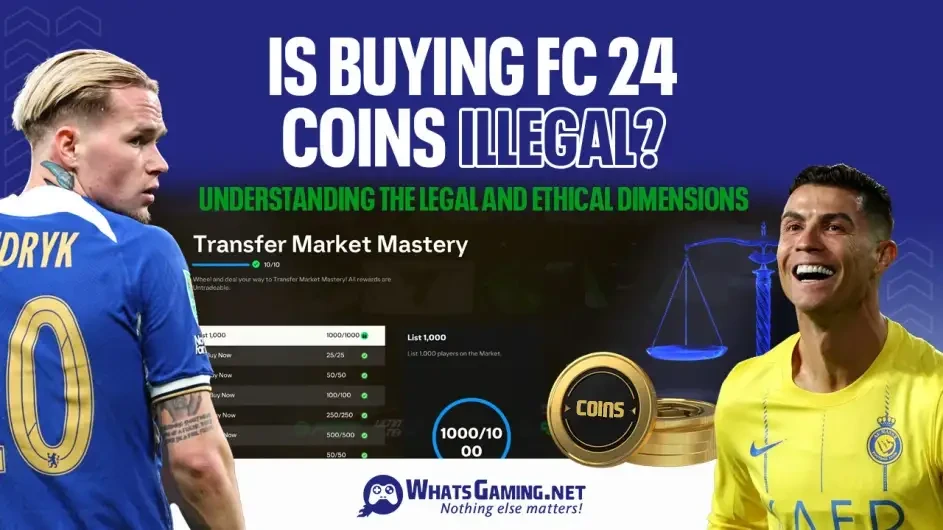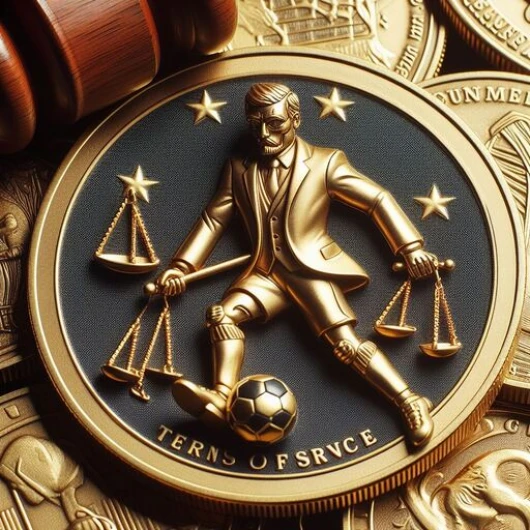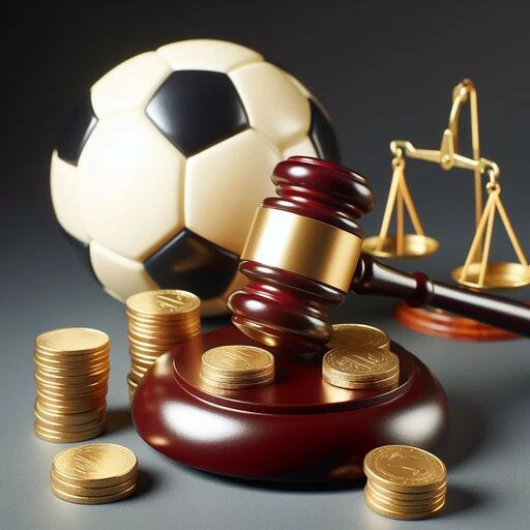
Is Buying FIFA Coins Illegal? Understanding the Legal and Ethical Dimensions
- Understanding FC 24 Coins
- The Legal Landscape
- Legal Precedents and Challenges
- Ethical Considerations
- Conclusion
In virtual sports gaming, EA Sports FC 24 has become popular for its lifelike experience, echoing the excitement of real football. As players aim to create their ideal teams and progress through the game, obtaining in-game currency, known as FC 24 Coins or formerly FIFA Coins, often comes up. This article explores whether buying FIFA is legal, looking at different viewpoints and explaining the uncertain areas surrounding this practice.

Understanding FIFA Coins
FC 24 coins are the virtual money used within the EA Sports FC 24 gaming world. They're crucial for players to enhance their gaming experience by getting better players, unlocking new features, and building strong teams. Getting FC 24 coins usually involves earning them through gameplay or buying them with real money.
The Legal Landscape
EA Sports explicitly forbids purchasing in-game currency from third-party sources in its terms of service. This is to keep the game fair for everyone and maintain its integrity. Breaking these terms can lead to serious consequences, like temporary suspensions or permanent bans.
Navigating the Grey Areas
One of the primary grey areas surrounds the ownership of virtual goods. Virtual items are often not recognized as tangible property in many legal systems, raising questions about the legality of purchasing in-game currency. Additionally, the distinction between virtual currency and virtual goods further complicates the matter, with different legal interpretations across regions.
The enforceability of terms of service is another aspect to consider. While these terms are binding within the gaming platform, their applicability in broader legal contexts may be limited. Some argue that gaming companies lack the authority to dictate players' interactions with virtual goods outside the game's confines.

Ownership of Virtual Goods: The legal status of buying in-game currency is unclear in many places, as virtual goods aren't always considered property. Since virtual items are often governed by the gaming platform's rules, players may find themselves in a legal gray area when breaking these rules. Buying FIFA Coins, or any in-game currency, is not inherently illegal, but it may violate the terms of service of the game. Many game publishers strictly prohibit the buying and selling of in-game currency outside of their designated channels. Engaging in such transactions can result in penalties such as temporary or permanent bans from the game.
Furthermore, buying FIFA 24 Coins from unauthorized third-party sellers can pose risks to your account security and personal information. These sellers may engage in fraudulent activities or exploit vulnerabilities in the game's system, putting your account at risk of hacking or compromise.
To avoid potential issues, it's best to earn FUT Coins through legitimate means within the game, such as completing matches, participating in events, or trading with other players through official channels. If you're considering purchasing FC 24 coins, please consider the WhatsGaming store, they are legitimate and reputable merchants.
Currency vs. Virtual Goods: Some legal systems view virtual currency as digital property, while others see it differently. This adds complexity to whether buying FC 24 coins is legal or not.

Enforceability of Terms of Service: While EA Sports' terms are binding within the game, their applicability in a broader legal context is debated. Some argue that gaming companies can't control how players interact with virtual goods beyond their platforms.
Economic Realities: In-game currencies have exchange rates with real money, suggesting that players assign real-world value to virtual items. This challenges the idea that buying FC 24 coins is always illegal. As a dedicated FIFA player, I've learned that following these rules is key to keeping the game fair and fun for everyone. So, before you start searching for a FIFA coin buying guide or reliable FIFA coin sites, remember the potential consequences. Play fair, play smart, and enjoy the game as it's meant to be played.

Legal Precedents and Challenges
There are few clear legal precedents regarding buying in-game currency. Cases like Blizzard Entertainment vs. MDY Industries highlight the importance of terms of service agreements, but challenges remain in establishing consistent legal frameworks.
Ethical Considerations
Apart from legal concerns, there are ethical debates about buying FC 24 Coins. Critics argue it gives an unfair advantage, while supporters believe players should have the freedom to enhance their experience without cheating.
Conclusion
The question of whether buying FIFA Coins is illegal is multifaceted, influenced by legal uncertainties, ethical debates, and evolving industry practices. While EA Sports prohibits such transactions within its platform, the broader legal landscape remains ambiguous. As virtual economies continue to evolve and gaming platforms adapt, the need for a standardized legal framework becomes increasingly apparent.
Ultimately, players must navigate these legal ambiguities with caution, weighing the potential risks and consequences associated with purchasing FC 24 coins. As the gaming industry grapples with these complex issues, ongoing dialogue and collaboration between players, gaming companies, and legal experts will be crucial in shaping the future of virtual economies and gaming ethics.
Discover more about this topic in our related article on the Strategies for Successful Trading in FC 24 Ultimate Team



